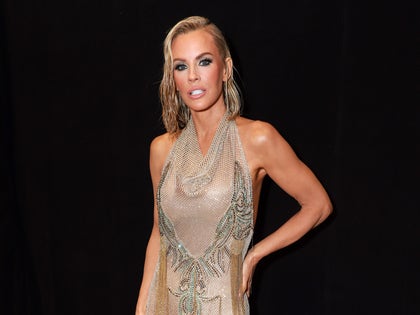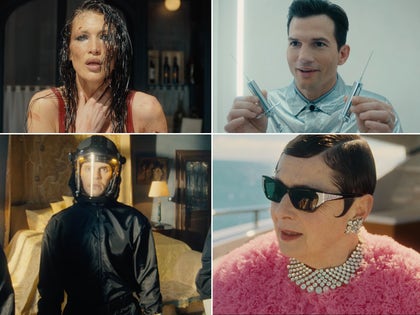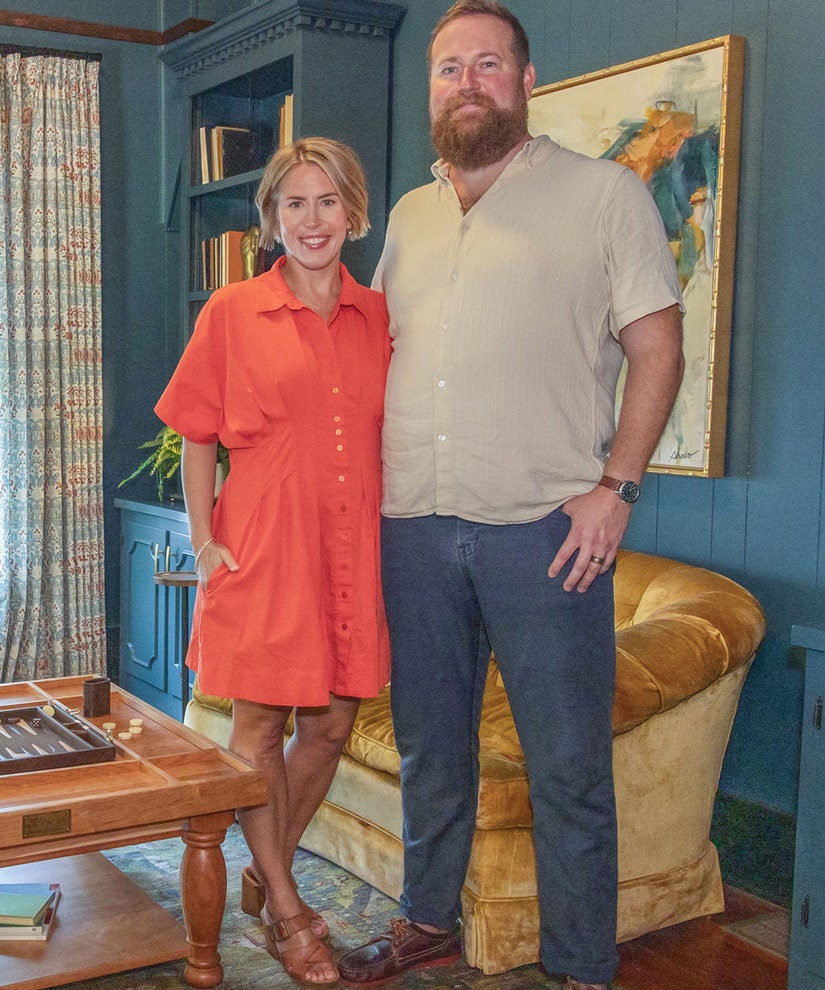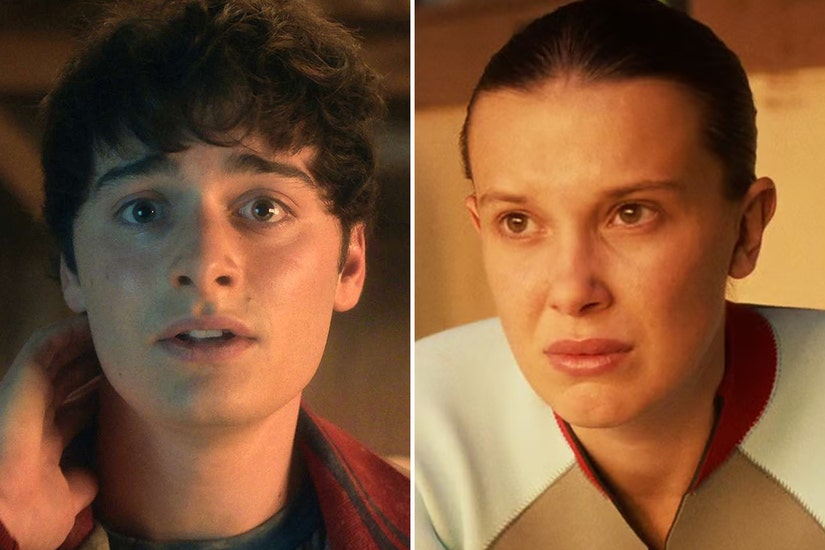 Getty
Getty
It wasn't until the second part of Lifetime's 'Where Is Wendy Williams?' docuseries that her son revealed she had "alcohol-induced" dementia -- her team shared a diagnosis of primary progressive aphasia and frontotemporal dementia days before release.
Now that everyone knows former talk show host Wendy Williams has been diagnosed with primary progressive aphasia and frontotemporal dementia, some have questioned if Lifetime's docuseries was exploitative.
Certainly, producers were unaware of any dementia diagnosis when they began the project, which names Wendy Wiliiams and her manager Will Selby among its executive producers. It was signed and developed as a comeback vehicle. it became something completely different.
 Lifetime
Lifetime
Where Is Wendy Williams Now as Family Fights for Her Life in Heartbreaking Docuseries Finale
View StoryWendy's diagnosis is the same as Bruce Willis', which could explain some of the concern as Willis' family has expressed that he may be mostly non-verbal at this time. Wendy, on the other hand, "is still able to do many things for herself," per her team's release. She is in the care of a court-appointed guardian.
Still, it was clear across the four-and-a-half hour run time of Where Is Wendy Williams? this past weekend that something was seriously amiss with the gregarious and fearless celebrity.
According to producer Mark Ford, as the project evolved, they became more invested with Wendy's health on this journey. "At a certain point, we were more worried about what would happen if we stopped filming than if we continued," he told The Hollywood Reporter. "Wendy loved it when the cameras came to the door, it gave her a reason to get up in the morning. I think you see that."
Through much of the series, Wendy was alone in her apartment with only paid staff present, so she developed an attachment to the production team. She was seen struggling with cognitive function and alcoholism at various points across the year-long shoot.
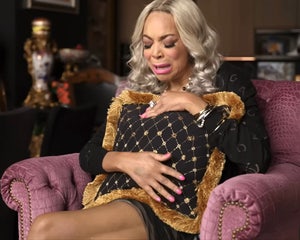 Lifetime
Lifetime
Most Disturbing Moments as Wendy Williams Opens Up in Painful Docuseries
View StoryFord said that there were concerns from the beginning if she would be able to do this after a preliminary shoot where Wendy already appeared to be considerably off her game.
"The story that was given to us after that day is that it was a bad day for Wendy and that alcohol had been involved, and now she was going away [for treatment]," Ford said, with her management team saying they should be good to move forward. "And when we did come back, she was better. She was sober and on a better trajectory."
Unfortunately, that didn't last, nor did the intention to follow her comeback as she prepared to launch a podcast "because of what we now know was the state of Wendy’s dementia."
He also said that even as they continued filming, they weren't sure that any of it would ever see air -- and he said that there are scenes that definitely won't. He also said they really only knew the subject was Wendy Williams, and were otherwise flexible to where the story took them.
 Getty
Getty
Wendy Williams' Family Details How Docuseries Changed from Comeback Story, Where She Is Now
View StoryThat wound up being a story about "the family’s point of view and illustrating what can happen when one of your family members is put into a guardianship outside of your control."
Wendy's family is in Florida fighting to try and be the ones who could provide her care after Wells Fargo took her to court over suspected fraud, freezing her accounts and seeing her set up with a court-appointed guardian (whose identity was kept secret throughout the documentary).
"I think we're very transparent about our producers' confusion," Ford said of the evolving shoot. "We're asking all of these questions that everyone has all the way through. We don't know this manager. It's a new manager. We don't know this publicist. It's a new publicist. The guardian won't speak to us."
They said that despite their concerns in regards to Wendy's well-being regarding the shoot, part of why they continued was because of how connected she was to the producers and the project.
 Lifetime
Lifetime
Wendy Williams' Family Fights Guardianship as Aphasia, Dementia Diagnosis Is Revealed
View Story"We ultimately knew that we have the control and we can just not air this if it can’t be moved into a positive, redeeming direction for her where we can help Wendy and hopefully other people," said Ford. "And that discovery came much later in the process."
As the project progressed, they realized it was an opportunity to show what life could be like under a guardianship outside of the family's care, and how they found Wendy's care, in particular, to be somewhat lacking.
"We felt like it was important to illustrate the difficult process that Wendy and her family were going through, and frankly what can happen to someone if they’re under the care of a guardian," Ford explained.
"I think the family thought, and we all thought, 'Shouldn’t there be somebody here more often? Shouldn’t there be somebody filling a refrigerator and checking in on her on a daily basis?' None of those things were happening."
 Getty
Getty
Kelly Ripa Says Wendy Williams Exposed Her & Mark Consuelos' Relationship
View StoryAsked about how they made judgment calls about when to stop filming, as the documentary captured some uncomfortable moments, Ford said they had to play it by ear with extensive conversations in the moment.
"We were constantly having conversations about whether this is worthwhile, whether this serves Wendy’s story and helps her move forward," he explained. "But at a certain point, the story was also about the reality of the situation that this woman finds herself in. And it’s not a pretty reality. It’s not a nice thing to watch."
"You just follow your instinct, and it was a sensitive, complex situation of what felt right and what felt wrong," added producer Erica Hansen. "And then there were times where Wendy made it clear when she was done for the day."
Talking about the scene in the car going to buy vape where Wendy appeared to forget where she was and what they'd just been doing, Hansen said they finally made the call, "Okay, we need to stop and make sure that she's okay and that she goes home."
 Getty
Getty
Rumer Willis Says She's 'Really Missing' Dad Bruce Willis Amid Dementia Battle
View Story"I'd also point out that a lot of people on our little team had been touched in their own worlds by dementia and addiction, so everyone from the field to post had this deep sense of caring and a great sense of moral responsibility," she continued. "And there were times where we really felt like if we stopped, what would happen? Would she just continue? And would she fall down the stairs?"
While the production team was never able to speak with the guardian -- "we either got a terse hang-up or a very brief, unpleasant exchange" -- they were able to coordinate with her through Wendy's manager, Will. With that, the guardian did sign off on the shoot, as well as Wendy's trip to visit her family in Miami.
Nevertheless, the guardian sued Lifetime's parent company in an attempt to stop the documentary from airing. "Ultimately, it’s a First Amendment issue," said Ford. "Nobody should have the power to quash Wendy’s voice, and her family’s voice. And thankfully the courts understood that that was the most important thing, and the free press won out here."
They also acknowledged that even though Wendy is an executive producer, they weren't able to screen it with her before it went to air as they've not spoken to her since they chose to stop filming in April 2023. At that point, they were concerned enough about her health to stop, with Wendy shortly going to an undisclosed facility for treatment, where she reportedly still is.
 Getty
Getty
Demi Moore Shares Advice for Families Dealing With Dementia Amid Bruce Willis' Diagnosis
View StoryAs the family hopes to be able to take over as Wendy's caretakers when her guardianship comes up for its next annual review, the filmmakers hope that this series helps them, and the whole guardianship process.
"I hope the people that instituted this guardianship will watch the film and see for themselves what Wendy’s situation was, and perhaps this is a cautionary tale moving forward about how to prevent this from happening to other people," Ford said.
"The diagnosis that was announced was not the information that any of us had going into it," said Lifetime's Brie Miranda Bryant. "So, people were watching the journey with information that we didn’t have in those first two hours, and I think that’s part of the confusion and the upset and outrage."
"We tried to be as transparent as possible," said Ford. "Like, Wendy would be left alone without food, completely on her own in that apartment with stairs that she could easily fall down. There was no one there 24/7. So, these are just all the questions we had throughout. But, of course, if we had known that Wendy had dementia going into it, no one would’ve rolled a camera."
"It is, at times, very difficult film to watch," Hanson told Entertainment Tonight. "I think that in the end, for me, the great relief is that ... I really do believe that we perhaps stayed to help make sure that she got the help she needed because she was not there during the time that we were there."
Added Ford, "We hope people watch it with an open mind, you know, get to the ending of it so you can understand really the plight of this family."
















